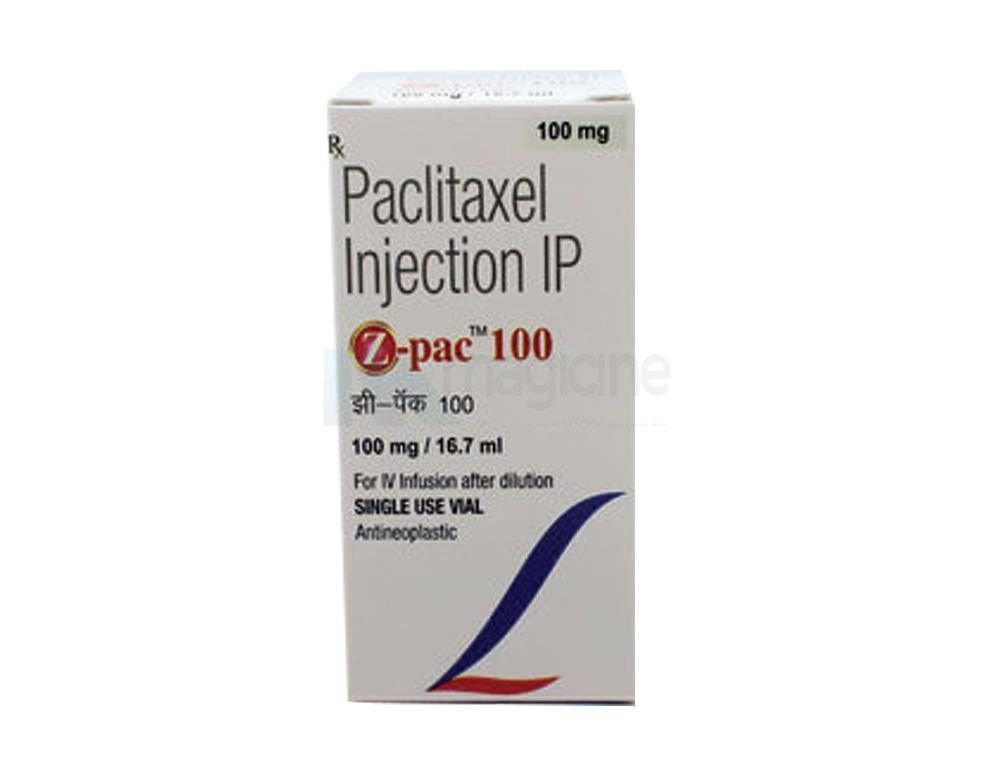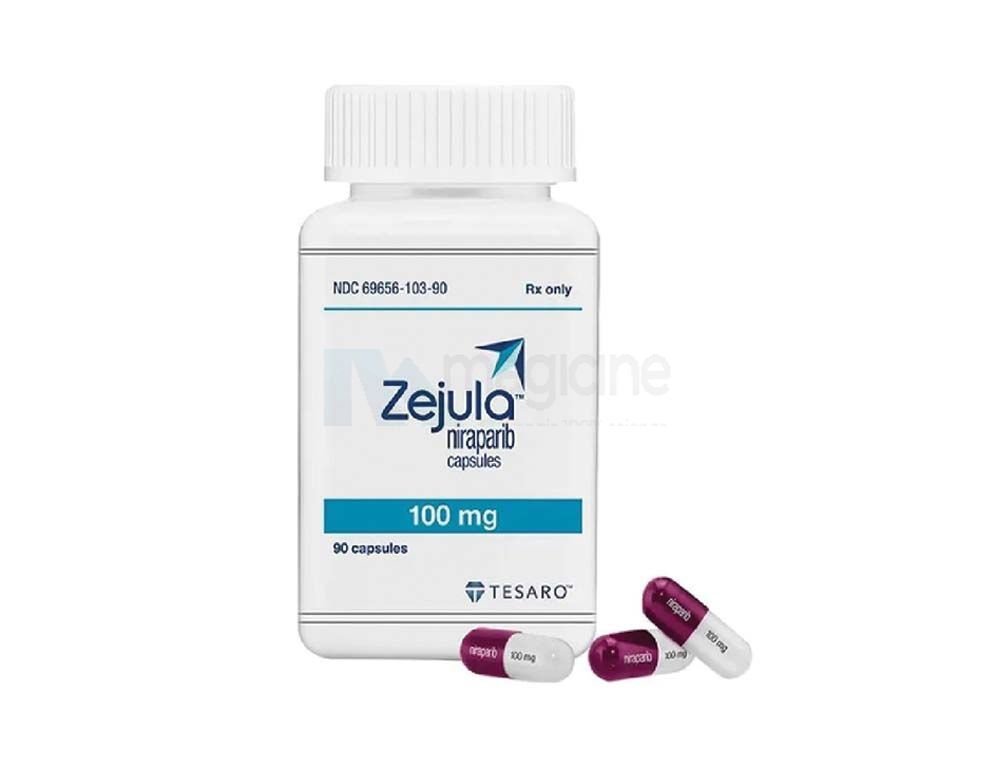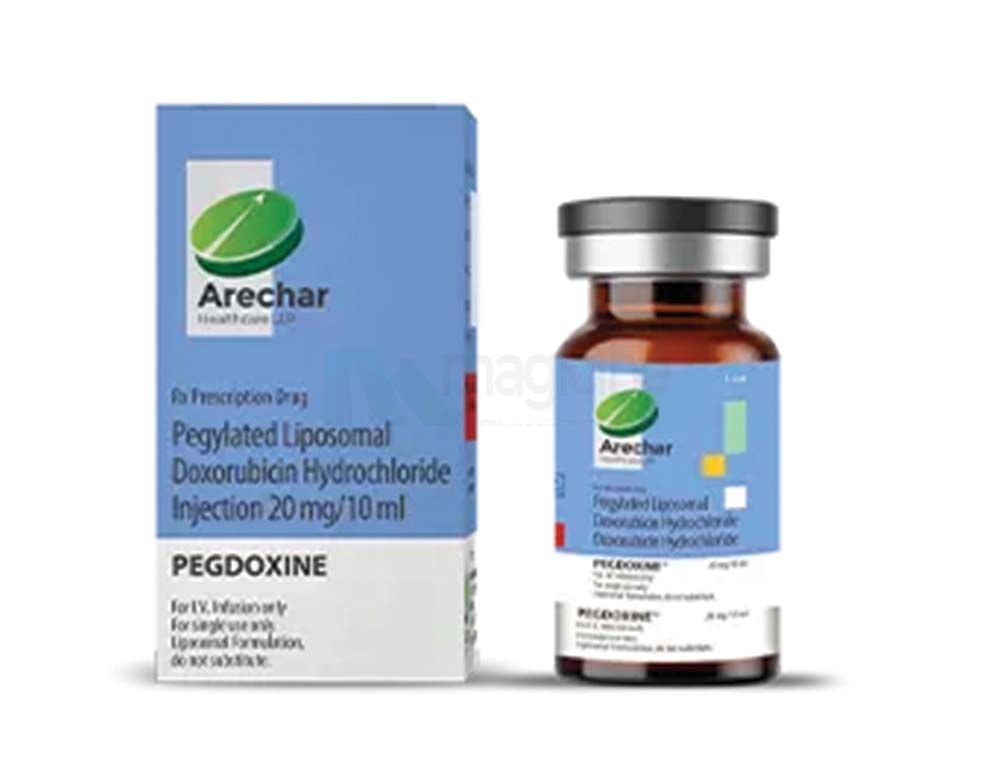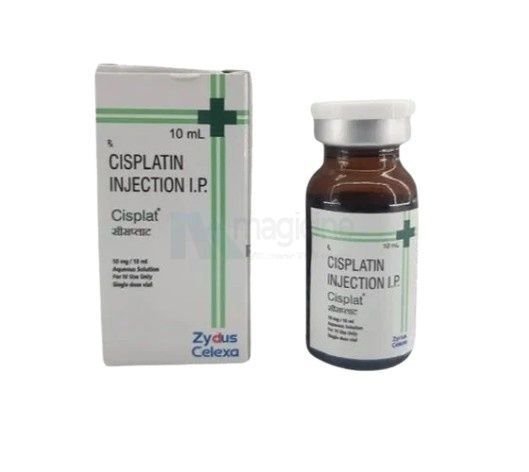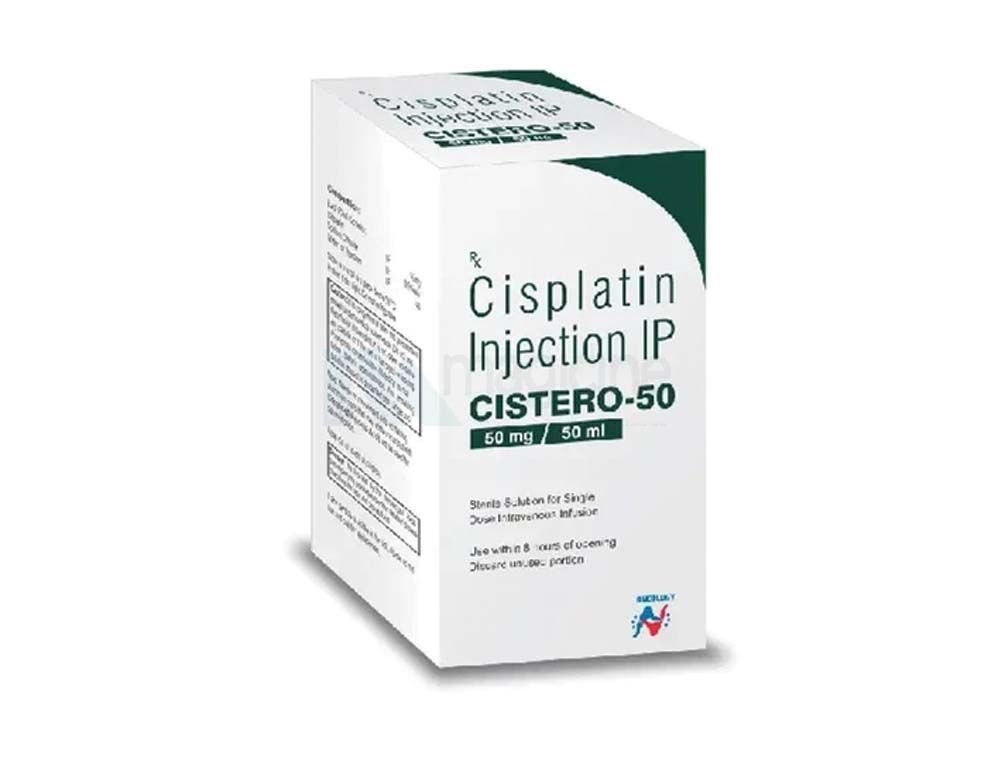Marketed By
Arechar HealthCare
Pack of
28 Capsules in Bottle
Salt Composition
Sunitinib
Storage
Keep in cold place
₹1150₹1995
42.36% Off
Inclusive of all taxes
1
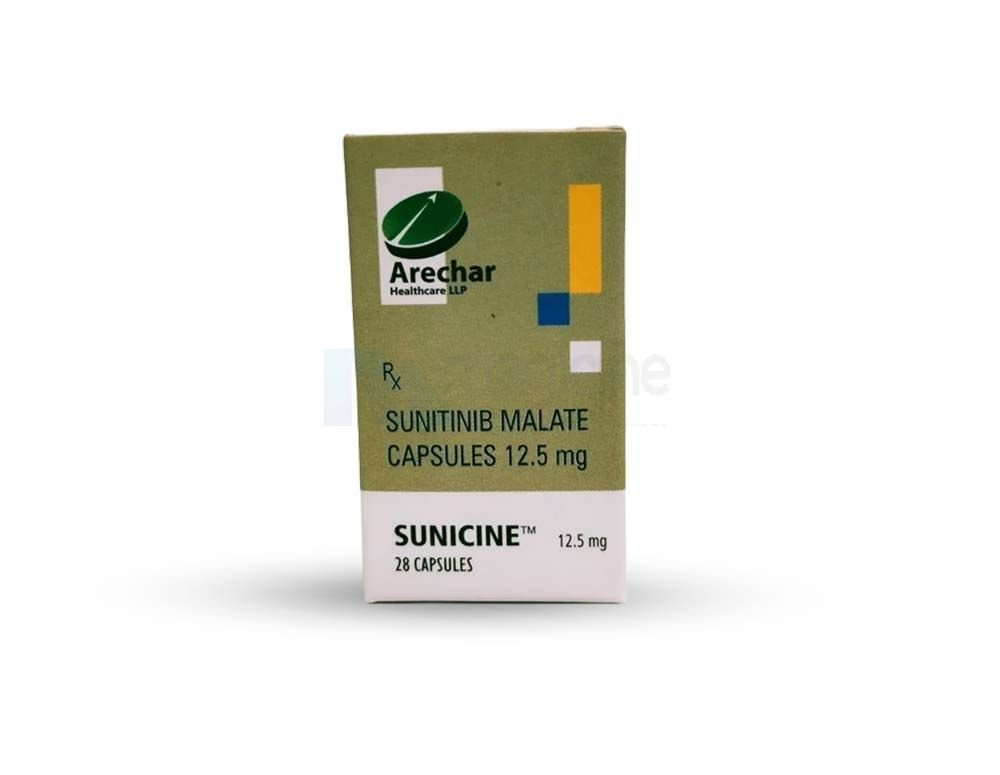
Sunicine 12.5mg Capsule
Delivering To: —
All Substitutes
Overview
Sunicine 12.5mg Capsule is an anticancer drug consisting of an active ingredient called Sunitinib. The doctor prescribes this medication to those who are diagnosed with early-stage Gastrointestinal Stromal Tumor (GIST), Advanced Renal Cell Carcinoma (RCC), and Pancreatic Neuroendocrine Tumors. This drug can only be used as a first-line treatment option for people who are diagnosed with early-stage cancer and cancer that can't be removed by surgery. This capsule restricts the function of specific enzymes that promote the growth of tumor cells. Eventually, it slows down the progression of cancer cells.
Sunicine capsule is considered to be an unsafe drug for people under the age of 18.
Indication
Kidney Cancer, Gastrointestinal stromal tumors
Side Effects
Side effects of Sunicine 12.5mg capsule may occur because the formulations are new to your body's mechanisms. These are manageable and don't require medical attention.
Common side effects include:
Diarrhea
Fever
Nervousness and dizziness
Headache
Fatigue
Difficulty in urination
Difficulty in breathing
Unusual weight loss
Irregular heartbeat
Coughing up blood
Chest tightness
Difficulty in urination
Rare side effects:
Seizures
Abdominal pain
Skin rash and darkening
Changes in vision
Numbness in the leg
Decreased white blood cell count (neutrophils)
Blistering of the skin
Joint stiffness
Inform your doctor immediately if you experience any persistent or unusual side effects.
How To Use
The dosage and treatment duration with Sunicine 12.5mg Capsule are determined by the doctor as per the stage & type of cancer and the overall patient's health. Swallow the tablet as a whole with water and don't chew, crush, or break it. This tablet can be taken with or without food. Don't miss a dose or overdose on the medicine.
How It Works
Sunicine 12.5mg Capsule contains Sunitinib that belongs to the class of protein kinase inhibitors. It works by targeting and blocking the activity of tyrosine kinase receptors, which are responsible for the growth and multiplication of cancerous cells. In this way, it reduces the uncontrolled growth of cancer cells and controls the tumor's size. It also prevents the formation of blood vessels in tumors.
Safety Advice

Alcohol
consult your doctor
Avoid the consumption of alcohol while taking Sunicine 12.5mg Capsule, as alcohol can reduce the effectiveness of the medicine and worsen the symptoms

Pregnancy
consult your doctor
Do not take Sunicine 12.5mg Capsule without consulting the doctor in case of pregnancy, as it is an unsafe medicine during this period.

Breast Feeding
consult your doctor
Sunicine 12.5mg Capsule is unsafe to use during breastfeeding as it may cause toxicity to the baby.

Driving
unsafe
Sunicine 12.5mg Capsule may cause side effects such as dizziness or lack of concentration, which could affect your ability to drive. So it's better to avoid driving or operating heavy machinery.

Kidney
safe if prescribed
Sunicine 12.5mg Capsule is safe for use in kidney disease if prescribed by the doctor. No dosage adjustment is necessary for this Tablet.

Liver
safe if prescribed
Sunicine 12.5mg Capsule is safe for use in liver disease if prescribed by the doctor. No dosage adjustment is necessary for this Tablet.
Missed Doses
It is advised not to miss any scheduled dosage of Sunicine 12.5mg Capsule. In case you miss a dose, consult your doctor immediately. Don't overdose to compensate for the missed one. Contact your doctor or any healthcare provider and seek medical attention immediately in such cases.
Quick Tips
Must avoid consumption of grapefruits in any form as they may interact with Sunicine Capsules.
Take Sunicine 12.5mg Capsule preferably at the same time regularly for better results.
Drink plenty of water and fluids to avoid dehydration. Taking Sunicine 12.5mg can cause diarrhea.
If you're suffering from a bleeding problem, share it with your doctor before taking Sunicine 12.5mg Capsule.
Monitor your blood sugar & blood pressure and thyroid hormone levels on a regular basis. Taking Sunicine Capsule can affect these.
Don't take this medicine if you're pregnant, breastfeeding, or planning to be pregnant. It is advisable to use effective methods of birth control and contraceptive pills to avoid pregnancy while under treatment with Sunicine 12.5mg Capsule.
FAQs
Sunicine 12.5mg Capsule is given to cure patients diagnosed with Gastrointestinal Stromal Tumor (GIST), Advanced Renal Cell Carcinoma (RCC), and Pancreatic Neuroendocrine Tumors.
You should ask your medical expert for the dosage and duration to take Sunicine 12.5mg Capsule. He will decide how you should take and how often you should take this medicine. It is advised to strictly follow the prescription for better results.
No, you can't breastfeed if you're taking Sunicine 12.5mg Capsule. This drug is considered to be unsafe to use during breastfeeding. It is predicted that this drug may pass through breast milk and harm the baby.
Sunicine 12.5mg Capsule blocks the enzymatic activity that helps in the multiplication of tumor cells. In such a way, it shrinks the tumor cells and slows down the growth of cancer cells.
When imatinib doesn't work in the treatment of Gastrointestinal stromal tumor (GIST), Sunicine 12.5mg is prescribed as a combination drug with other chemotherapy medicines.
Reference
1. Minor, D. R., Kashani-Sabet, M., Garrido, M., O'Day, S. J., Hamid, O., & Bastian, B. C. (2012). Sunitinib therapy for melanoma patients with KIT mutations. Clinical cancer research, 18(5), 1457-1463.
2. Ravaud, A., Motzer, R. J., Pandha, H. S., George, D. J., Pantuck, A. J., Patel, A., ... & Patard, J. J. (2016). Adjuvant sunitinib in high-risk renal-cell carcinoma after nephrectomy. New england journal of medicine, 375(23), 2246-2254.
3. Gan, H. K., Seruga, B., & Knox, J. J. (2009). Sunitinib in solid tumors. Expert opinion on investigational drugs, 18(6), 821-834.
4. Motzer, R. J., Rini, B. I., Bukowski, R. M., Curti, B. D., George, D. J., Hudes, G. R., ... & Michaelson, M. D. (2006). Sunitinib in patients with metastatic renal cell carcinoma. Jama, 295(21), 2516-2524.
5. Faivre, S., Demetri, G., Sargent, W., & Raymond, E. (2007). Molecular basis for sunitinib efficacy and future clinical development. Nature reviews Drug discovery, 6(9), 734-745.
6. Rini, B. I. (2007). Sunitinib. Expert opinion on pharmacotherapy, 8(14), 2359-2369.
Related Products
MARKETER DETAILS
Arechar HealthCare
DISCLAIMER
The contents of this website are for informative purposes only. They are not deliberated to be an alternative to any professional medical prescription and treatment. Seek the advice of a qualified health provider for questions regarding the medical condition. Do not ignore any professional medical advice because of something you have read on this website. This website offers links to other websites, thereby enabling you to go to the other website directly. Therefore, Magicine Pharma isn't responsible for the content of the links in the website or links in the linked websites. The links are provided to assist the visitors and are not approved by any professional health provider.







